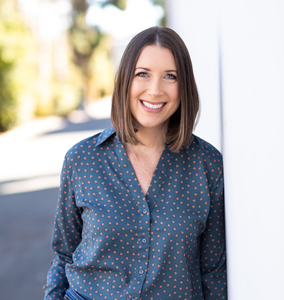Empowering People With Eating Disorders to Recover at Home


Eating disorders affect nearly one in 10 Americans, and 10,200 deaths each year are the direct result of one of these illnesses. However, the United States has a shortage of experts providing treatment, says Dr. Erin Parks, co-founder and chief clinical officer of Equip, a 100% virtual eating disorder treatment program.
“I think it’s generous to say that there’s even 5,000 outpatient specialists,” Parks told Lauren Burkavage, senior director of the strategic partnerships team at Accolade, during a From Day One webinar.
Another key issue in eating disorder treatment is it requires a multidisciplinary approach to be effective, says Parks. “It’s hard to put together a team because it often takes both medical and mental health professionals to help someone recover,” she said. Equip not only provides a five-person team for each patient, but also lets them recover in their own home.
“We think it’s important to be at work, to be at school, to be at soccer practice, to be in their book club, because those are the reasons we recover,” Parks said. “We wanted to make sure treatment was being delivered at home around your schedule instead of having to give up on life to get better.”
From an employer’s perspective, Equip results in reduced absenteeism because an employee who is either dealing with an eating disorder themselves or has a child dealing with one doesn’t have to “take them to appointments or travel to a residential treatment center, which many times aren’t closely located to where people live,” Burkavage said.
Other Equip Advantages
There are four different kinds of treatment for eating disorders: a residential treatment center (RTC), where patients live full-time for a month or more; partial hospitalization (PHP), where the individual stays in a hospital for six to nine hours a day for five to seven days a week; intensive outpatient treatment (IOP), which lasts three hours a day for three to five days a week; and outpatient treatment, which is what Equip provides in a virtual setting.
“Right now, about 85% of our patients meet criteria to go to IOP, PHP or residential, but choose to use Equip instead,” she said. One reason is a patient’s insurance might cover care at a residential treatment center, but when they go home, they can’t find a PHP, IOP, or even an outpatient provider.
“That really contributes to the fact that 50% of patients usually relapse within a year of treatment, and it’s because treatment doesn’t last that long, just a couple of months,” Parks said. But in the Equip system, “a lot of our patients stay with us for a full year, really getting them to a solid place and giving them more than just a foundation,” she said. “They can see their life without an eating disorder by the time they leave.”
Provider Diversity and Peer Mentors

One thing that prevents people from seeking treatment for eating disorders is the stereotype that they only affect thin, white teenage girls or young women, says Parks. “But the truth is eating disorders don’t discriminate,” she said.
“At Equip, we’ve had patients as young as 5, and we’ve had adults in their 70s. Up to 40% of people who suffer are male. It affects all races and ethnicities equally, and it affects people at all areas of the socio-economic spectrum. And probably the most surprising thing is people with eating disorders come in all shapes and sizes.”
Seniors, males, and people of color tend to want a provider that has a similar lived experience as they do, says Parks.
In addition, someone who is transgender or gender non-conforming is four to five times more likely to develop an eating disorder than someone who is cisgender, Parks says.
“It’s less safe for them to get treatment when they don’t have providers who understand the intersection between their gender identity and their eating disorder,” she said.
This is why Equip is dedicated to increasing the diversity of its providers. The organization also has peer mentors, who are employees who have recovered from an eating disorder themselves.
“Our patients really love working with their peer mentors because they have a shared identity.” Peer mentors “help to increase motivation, build a life worth living, and figure out why you want to recover from your eating disorder.”
Editor's note: From Day One thanks our partner, Accolade, for sponsoring this thought leadership spotlight.
Mary Pieper is a freelancer reporter based in Mason City, Iowa.
The From Day One Newsletter is a monthly roundup of articles, features, and editorials on innovative ways for companies to forge stronger relationships with their employees, customers, and communities.